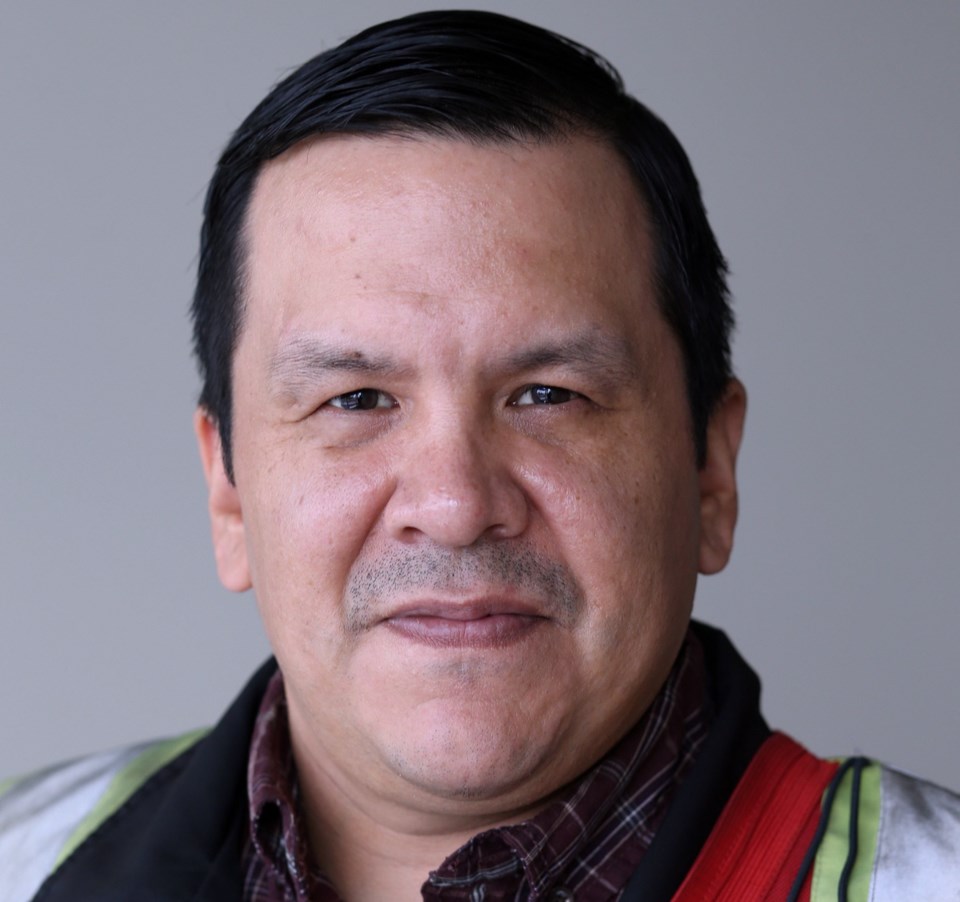Songhees Chief Ron Sam has asked for full membership on the Capital Regional District board.
Sam said the Songhees Nation is expected to pay its share of mega-projects such as sewage treatment while being left out of decision-making.
“Our capital contribution [for sewage treatment] is expected to be $3.25 million with annual contributions of $418,000 toward the operating costs. This was a decision that was made by this board without any input from the Songhees Nation,” Sam told CRD directors.
“While it is important to pay for your full share as a part of the team, it is another to be told what the costs are without being involved in the final decision. … The current process is not working, as being told what your costs are does not signal any government-to-government discussion to me.”
First Nations membership on regional boards is provided for under the Local Government Act — if the final treaty agreement provides for it.
Although the Te’mexw Treaty negotiations — which include the Songhees — are nearing an agreement in principle, the finalization of the treaty is likely many years away, according to the CRD’s quarterly Aboriginal Initiatives staff report.
“I would like to suggest that we need to work outside of this regulatory requirement and collectively work on allowing the Songhees Nation access as a full member of the CRD board,” Sam said, adding that a treaty agreement is not assured. “I can’t guarantee our people will vote for a treaty. But I can guarantee that our people will always be here, regardless of treaty or not,” he said.
Victoria Coun. Ben Isitt said the issue of treaty talks shouldn’t “silence” the request for board membership.
He said he would support an investigation of what First Nations representation on the CRD board could look like. “Just because there may be matters relating to land or other issues within a treaty process, to suggest there aren’t opportunities for public discussion and deliberation about CRD involvement with First Nations, I think, is very problematic,” Isitt said.
“At some point, we’re going to have to look at some kind of a joint committee that would have maybe two or three representatives from this table, [and] perhaps two or three representatives from the First Nations governments that would dig into the issues — look at the implications.”
Esquimalt Mayor Barb Desjardins said she welcomed Sam’s request so the First Nation can participate in decisions that affect its community.
Allowing the Songhees a seat at the CRD board before the finalization of the treaty would need to involve the province and Te’mexw Treaty negotiators, says the staff report, adding that discussions about the request are pending.
CRD directors were also addressed by Tseycum Chief Vern Jacks, who said development — such as roadways — can no longer be allowed to desecrate First Nation burial sites.
“I have pictures here, the bones of our ancestors right under West Saanich Road. Those things have to be fixed today. We have to work together to change the legislation and not use as an excuse that there’s no legislation,” Jacks said. The Tseycum First Nation is on the Saanich Peninsula.
CRD boundaries overlap the territories of 10 First Nations, says the report. In response to a question from Isitt, Sam said each should have a representative on the CRD board.
In an interview, CRD chairman Alastair Bryson said the legislative framework provides for representation at the board after a treaty has been reached but that the CRD is committed to expanding relationships with First Nations.
He said the CRD provides a number of services to First Nations and CRD directors are aware of the importance of having input into decisions on services they pay for.



